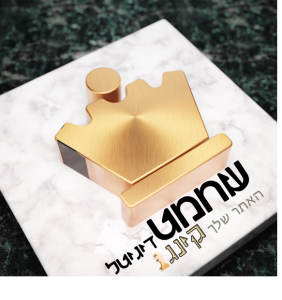Ki Teitzei -There is no action that is trivial.
Ki Teitzei -There is no action that is trivial.
If, along the road, you chance upon a bird’s nest, in any tree or on the ground, with fledglings or eggs and the mother sitting over the fledglings or on the eggs, do not take the mother together with her young. Let the mother go, and take only the young, in order that you may fare well and have a long life. (Devarim 22:6-7)
The parshah (portion of the Torah) of Ki Teitzei (“When you go out”) contains a significant portion of the Torah’s laws: no less than 74 mitzvot (out of a total of 613) have been counted by the halachic authorities as deriving from our parshah, which has the largest concentration of mitzvot (commandments) of any portion. Of all these commandments, one stands out. “If [walking] along the road, you chance upon a bird’s nest . . . and the mother is sitting over the fledglings or on the eggs, do not take the mother together with her young. Let the mother go and take only the young, in order that you may fare well and have a long life” (Devarim 22:6).
The Talmud labels this mitzvah the “lightest” (the most insubstantial) of all the commandments, indeed it takes little effort to perform. Sending away the mother might involve merely making a loud noise. Just walking close (or advancing threateningly) might induce the mother to fly away. Commentators in every generation have wondered why there is so extravagant a reward (a long life) for so “trivial” an act! Indeed, Rabbi Shimon bar Yohai taught that the same reward (a long life) is specified in the Torah for honoring parents. Yet fulfilling that commandment takes a lifetime and often involves money, emotion and unceasing efforts. Thus Rabbi Shimon bar Yohai concludes that the equality of reward is the point. The “lightest” of commandments are rewarded as much as the weightiest” to teach us to treasure and observe all commandments equally–for the reward of any mitzvah is incalculable.
“Rabbi Shimon bar Yohai taught: The Holy One has revealed the reward for heeding two precepts in the Torah: one of these precepts is the least onerous, and the other is the most onerous. The least onerous concerns letting the mother go when chancing on a bird’s nest – with regard to it, the Torah promises in order that you may fare well and have a long life. The most onerous concerns honoring one’s father and mother – with regard to it also, the Torah promises “that you may long endure and that you may fare well.” (D’varim 5:16) So the two precepts are alike in the reward received in this world for their observance “( Midrash Tanhuma Eikev 2).
Through this commandment, the Torah teaches that every act is of tremendous significance and no act is essentially trivial. The most mundane of acts has immense implications. When you eat, you can choose food and prepare it to express your commitment to being a Jew (kashrut). When you speak, you can say a word of encouragement, truth or love or you can say a word of malicious gossip, falsehood or degradation. Maimonides writes in his laws of repentance “One should see the world, and see oneself on a scale with an equal balance of good and evil. When he does one good deed the scale is tipped to the good – the world is saved. When one does one evil deed the scale is tipped to the bad – and the world is destroyed.” (Hil. Teshuva 3:4) Each one of us should consider himself or herself as perfectly balanced between good and bad and the world as perfectly balanced between good and evil. The next action you do–however trivial–can tilt you and the whole world toward the side of good and life or to the side of evil and death.
There is no action that is trivial.

 שחמט דיגיטל
שחמט דיגיטל